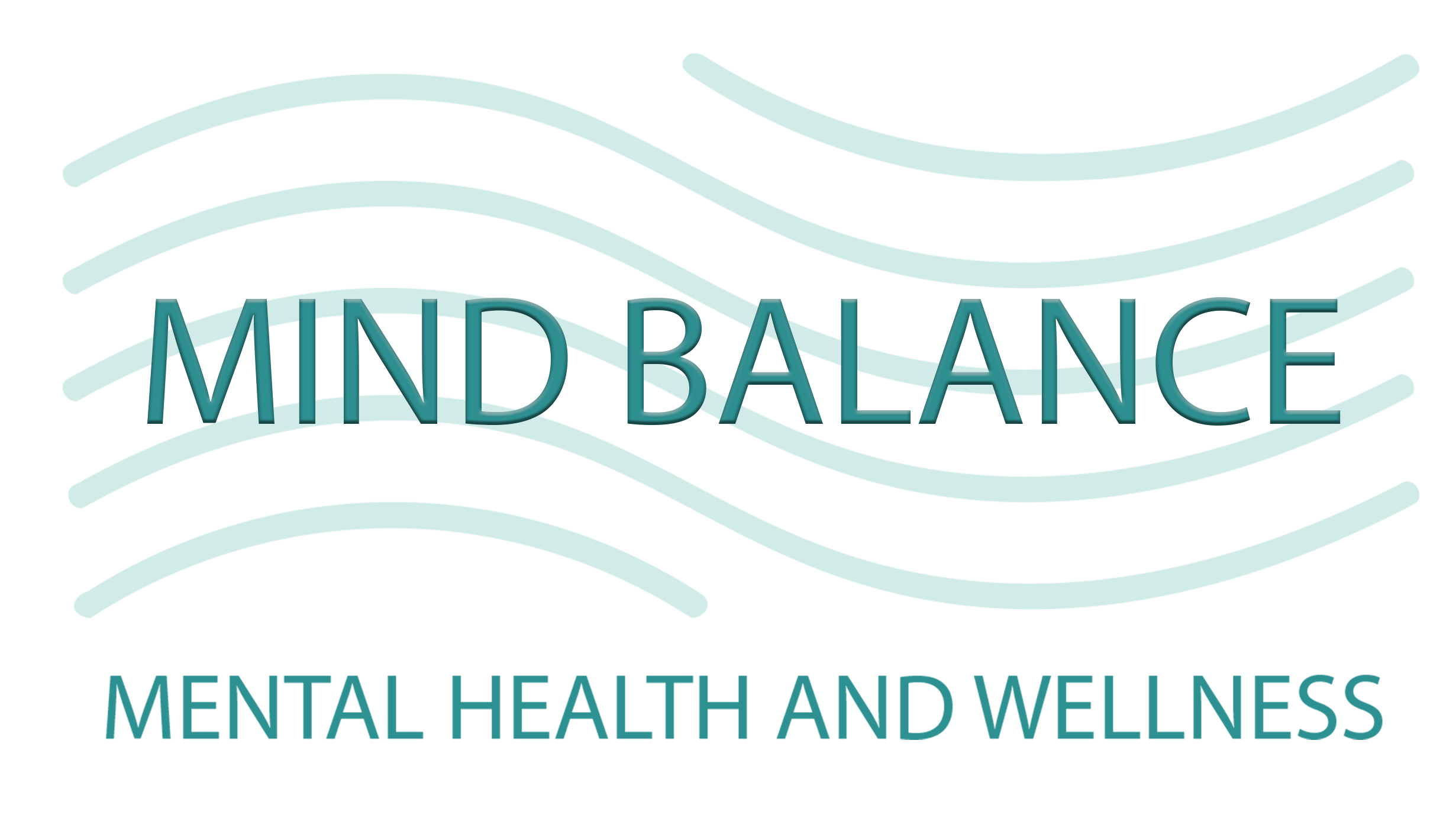Why Mental Health Matters
Taking care of your mental health is key to living a happy, healthy life. When you focus on your mental well-being, you’re better equipped to handle life’s ups and downs and build strong relationships.
Putting Yourself First
It’s vital to understand why your mental health should be a top priority. Mental health issues are common, affecting about 1 in 5 adults in the U.S. (Montare Behavioral Health). These issues can mess with your work, relationships, and overall happiness.
By focusing on your mental health, you’re taking steps to keep your mind and emotions in check. This means recognizing and dealing with any mental health problems like anxiety, depression, ADHD, bipolar disorder, or OCD. Getting the right treatment and support can help you manage these conditions and boost your mental well-being.
Why Choose Mind Balance Center
To help you on your mental health journey, Mind Balance Center in Charlotte, NC, offers a variety of behavioral health services. Their team of pros uses proven treatments tailored to your needs, making sure you get the care and support you deserve.
Mind Balance Center knows how tough mental health struggles can be. They provide a safe space where you can talk about your issues and work with their team to create a treatment plan just for you. Their services include outpatient psychiatry, telehealth, teletherapy, and more, making it easy to get the care you need.
When you choose Mind Balance Center, you’re getting a team of experts who specialize in conditions like anxiety, depression, bipolar disorder, ADHD, and OCD. They use cutting-edge treatments and therapies to meet your needs and help you achieve better mental health.
Focusing on your mental health and getting help from the pros at Mind Balance Center can change your life for the better. By addressing mental health issues, you can feel better emotionally, improve your relationships, be more productive, and find more happiness and fulfillment.
Remember, putting your mental health first is crucial for your well-being and your ability to thrive in life. Take the first step towards a healthier, happier future by reaching out to Mind Balance Center for the support and guidance you need.
Behavioral Health Services Overview
Taking care of your mental health is a big deal. Knowing what behavioral health is and how to get the right care can make a huge difference in your life.
What’s Behavioral Health Anyway?
Behavioral health is all about how your actions, feelings, and overall well-being are connected. It’s a fancy term that covers a bunch of mental health services and treatments. You might hear “mental health” and “behavioral health” thrown around like they mean the same thing. Same goes for “counselor,” “therapist,” and “clinician”.
Different pros handle behavioral health. Psychologists, with their fancy doctoral degrees, dig into your mental health through interviews, tests, and evaluations. They can diagnose you and offer therapy, whether one-on-one or in groups. Clinical social workers also evaluate mental health, use therapy techniques, and help with case management and advocacy. Psychiatrists, who are medical doctors with psychiatric training, diagnose conditions, prescribe meds, and provide therapy (Lewis & Clark College).
Getting the Right Care
Finding good behavioral health care is key to getting the help you need. There are lots of ways to get care, depending on what works best for you. Traditional in-person therapy is still a go-to for many. But tele-therapy is becoming super popular. It lets you chat with a therapist online, which is great if you’re busy or can’t get to a therapist in person.
When looking for quality care, check out the provider’s qualifications, experience, and treatment style. Do some research and ask around for recommendations to find someone who fits your needs. Also, make sure to check your insurance coverage so you know what’s covered and what’s not.
Taking steps to understand behavioral health and find the right care can really boost your mental health. Remember, asking for help shows strength and courage. Whether you go for in-person therapy or tele-therapy, finding the right mental health provider is a big step towards feeling better. For more info on treatment options, check out our section on treatment options for mental health.
Mental Health Tech: Changing the Game
Lately, tech has been shaking up how we handle mental health. These new tools are opening doors for folks looking for help and could totally change how we treat mental health in the future.
Tech’s Impact on Mental Health
Tech has flipped the mental health scene on its head, making resources and tools more accessible. The National Institute of Mental Health (NIMH) is all in, backing tons of projects that use tech to boost mental well-being. We’re talking about stuff like cognitive training, skill-building, managing illnesses, tracking symptoms without lifting a finger, collecting data, and doing research.
One cool thing that’s popped up is mental health apps. These apps can help you keep track of your meds, teach you how to cope, and even give you a heads-up when you might need some emotional support. Engineers and mental health pros are teaming up to make these apps easy to use and super effective (NIMH).
But, heads up: the mental health app market is kinda like the Wild West. There’s no regulation, and it’s hard to know which apps actually work. With thousands out there, picking the right one can be a headache. So, it’s smart to talk to a mental health pro or stick to trusted sources when you’re looking for an app.
What’s Next for Mental Health Treatment?
The future looks bright for mental health treatment, thanks to tech. Groups like NIMH are pushing for more research on how digital health and AI tools can help in clinical and intervention research. These tools could give us new insights and make mental health care even better (NIMH).
As we move forward, tech will likely keep breaking down barriers to mental health services. Telehealth is already a big deal, letting people get mental health support from home through teletherapy and tele-psychiatry. This means no more worrying about how far away the nearest therapist is, and you can get help on your own schedule (telehealth, teletherapy, tele-psychiatry).
Looking ahead, we might see even cooler stuff like personalized treatments based on data, virtual reality therapies, and wearables that keep an eye on your mental health in real-time. These innovations could make mental health treatment more effective and easier to get, helping people tap into their inner strength and feel their best.
But remember, tech should add to professional mental health care, not replace it. Mental health pros are key for giving you personalized, evidence-based treatment. If you need help, talk to a qualified mental health provider who can guide you through your options and find what works best for you.
By mixing tech advancements with professional care, you can start on a path to better mental well-being and find the support you need to live a happier, healthier life.
Mental Health Disorders: What You Need to Know
Getting a grip on mental health disorders is key to knowing when to seek help and how to access the right behavioral health treatment services. Let’s break down some common mental health issues and why it’s important to focus on specific groups.
Common Mental Health Conditions
Mental health disorders cover a wide range of issues that mess with your emotional balance. Some big ones include depression, bipolar disorder, and cyclothymic disorder. These can seriously mess with your day-to-day life, relationships, and overall happiness.
Eating disorders like anorexia, bulimia, and binge eating disorder are another big group. These come from extreme feelings and behaviors about weight and food. Getting the right treatment and support is crucial for anyone dealing with these issues to get back on track.
Here are some common mental health conditions:
| Condition | Description |
|---|---|
| Depression | Persistent feelings of sadness, hopelessness, and loss of interest in activities. |
| Bipolar Disorder | Extreme mood swings between depression and mania, characterized by elevated energy levels and impulsive behavior. |
| Anxiety Disorders | Excessive worry, fear, and nervousness that can interfere with daily functioning. |
| Attention-Deficit/Hyperactivity Disorder (ADHD) | Difficulty paying attention, hyperactivity, and impulsivity, often diagnosed in childhood but can persist into adulthood. |
| Obsessive-Compulsive Disorder (OCD) | Intrusive thoughts (obsessions) and repetitive behaviors (compulsions) that cause distress and interfere with daily life. |
For more info on specific mental health conditions and treatments, check out our articles on depression treatment, anxiety treatment, ADHD treatment, OCD treatment, and bipolar disorder treatment.
Special Focus on Certain Groups
Some groups have unique mental health needs that need special care. Take first responders and military personnel, for example. They’re more likely to develop PTSD because of the traumatic stuff they deal with on the job. Recognizing and addressing their specific challenges is crucial for their well-being.
Kids and teens are another group that might face mental health issues needing special attention. Catching these issues early and intervening can make a huge difference in their mental health. Schools, parents, and healthcare providers all play a big role in spotting and dealing with these concerns.
By understanding how common mental health disorders are and recognizing the needs of different groups, we can help break the stigma around mental health. Everyone should have access to the support and mental health services they need.
Treatment Options for Mental Health
Dealing with mental health issues can feel like a maze, but there are plenty of ways to find your way out. From talking it out with a therapist to trying out the latest tech-based treatments, there’s something for everyone. Let’s break down some of the options to help you figure out what might work best for you.
Talking It Out
Talking to someone who gets it can make a world of difference. Here are a few ways to do that:
- Cognitive-Behavioral Therapy (CBT): This one’s all about changing those pesky negative thoughts and behaviors. Think of it as a mental tune-up, helping you swap out unhelpful patterns for healthier ones.
- Group and Individual Therapy: Whether you’re chatting one-on-one or in a group, therapy gives you a safe space to dig into your thoughts and feelings. It’s like having a mental health gym where you can build up your emotional muscles.
- Non-Traditional Therapies: Sometimes, words aren’t enough. That’s where art or music therapy comes in. These creative outlets let you express yourself in ways that traditional talk therapy might not, helping you process emotions and heal.
Choosing the right therapy depends on what you’re dealing with and what feels right for you. A mental health pro can help you figure that out.
New and Cool Treatments
Beyond the usual therapy sessions, there are some cutting-edge options that might catch your interest:
- Teletherapy: Can’t make it to a therapist’s office? No problem. Teletherapy lets you connect with a therapist via video chat, making it easier to get help no matter where you are.
- Medication Management: Sometimes, therapy alone isn’t enough. Medications can help balance things out. Psychiatrists can prescribe and monitor these meds, making sure you’re on the right track (Lewis & Clark College).
Mixing these new methods with traditional therapy can give you a well-rounded approach to mental health care.
Finding What Works for You
Remember, there’s no one-size-fits-all solution here. What works for one person might not work for another. It’s all about finding what fits your needs and preferences. A mental health professional can help you put together a plan that’s just right for you.
Taking that first step to seek help is huge. It’s a sign that you’re ready to take control of your mental health and start feeling better. So, reach out, explore your options, and find the support that works for you. Your well-being is worth it.
Bringing Behavioral Health into Primary Care
To give folks the best care possible, it’s key to mix behavioral health services with primary care. This combo approach tackles both physical and mental health needs. Let’s dig into why this matters and how to bust through the barriers.
Why Integrated Care Rocks
Having behavioral health pros on primary care teams is a game-changer. Studies show that about one in four primary care patients have multiple health issues, and up to half might have a psychiatric disorder. This means primary care is dealing with some pretty complex stuff (NCBI). With behavioral health experts on board, doctors can better handle these tricky cases, leading to happier, healthier patients.
Most primary care docs aren’t trained to spot and treat psychiatric conditions. That’s where behavioral health pros come in. They help catch and treat mental health issues early, cutting down on unnecessary visits for unexplained symptoms.
Behavioral health providers use proven methods like motivational interviewing and cognitive-behavioral therapy to help patients make lifestyle changes. These techniques boost self-management, reduce clinic visits, and improve outcomes when mixed with other treatments (NCBI).
They also tackle social issues affecting health, like money problems, family stress, and time constraints. By teaming up with social services, they make sure patients get the right support and referrals.
Plus, having behavioral health pros on the team means everyone learns from each other. They can teach primary care docs about spotting and treating mental health issues early. This teamwork leads to better care all around.
Busting Barriers to Access
Mixing behavioral health with primary care is awesome, but there are some hurdles to clear:
- Limited resources: We need enough money and resources to support this integration. This includes funding, training programs, and infrastructure.
- Stigma and attitudes: Mental health stigma is a big deal. Education and awareness campaigns can help break down these barriers and make it easier for people to seek help.
- Workforce shortages: There aren’t enough behavioral health pros in many places. Programs like loan forgiveness, incentives, and telehealth can help bring more professionals to underserved areas.
- Collaborative partnerships: Strong teamwork between primary care and behavioral health providers is crucial. Regular communication, shared decision-making, and joint care planning make integration work.
By tackling these barriers head-on, primary care can become a more complete and accessible healthcare environment, addressing both mental and physical health needs.
Bringing behavioral health into primary care is a big step toward better health outcomes. By focusing on integrated care and overcoming access barriers, patients get the full support they need for overall well-being.





